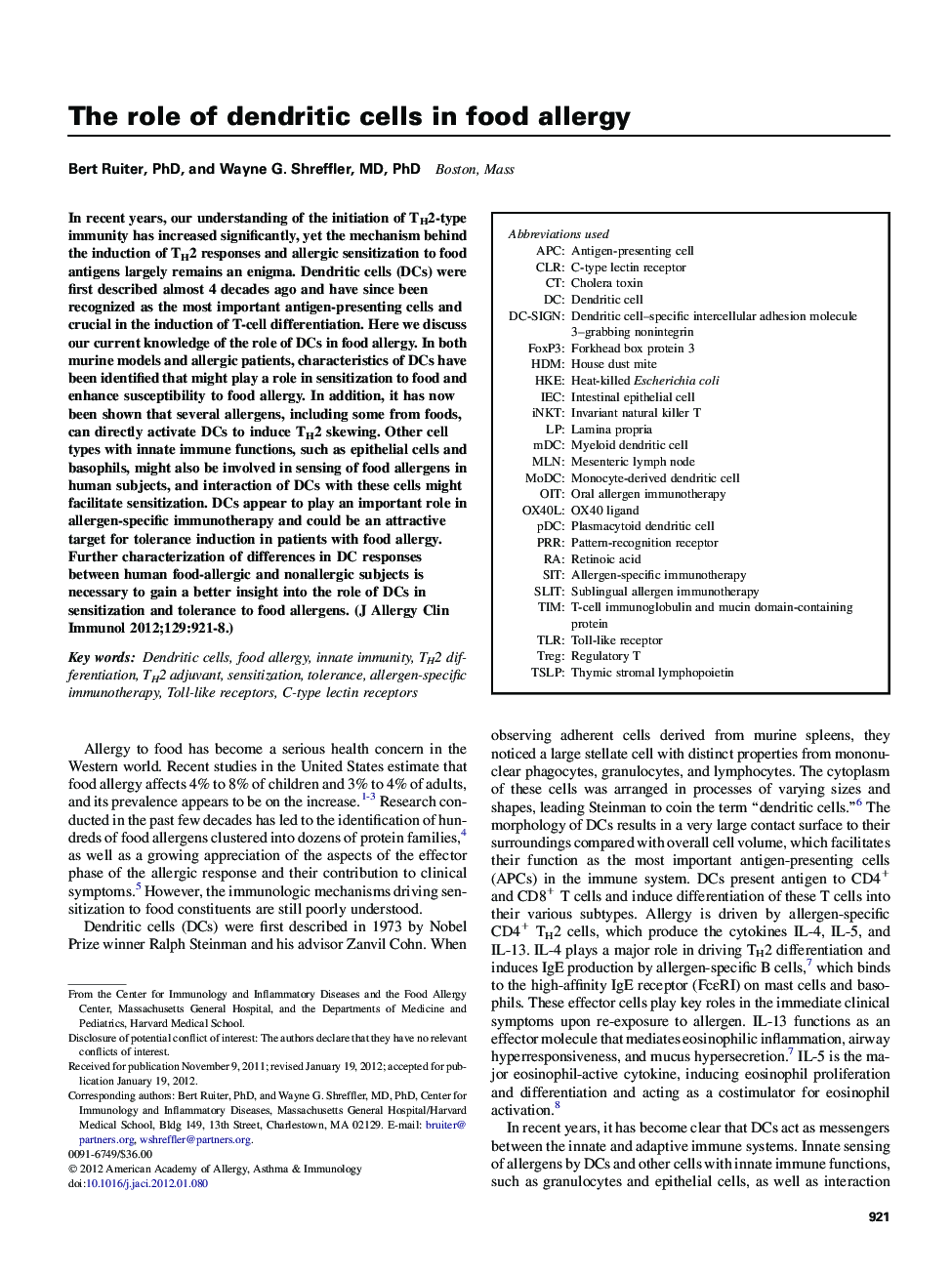| Article ID | Journal | Published Year | Pages | File Type |
|---|---|---|---|---|
| 6066906 | Journal of Allergy and Clinical Immunology | 2012 | 8 Pages |
In recent years, our understanding of the initiation of TH2-type immunity has increased significantly, yet the mechanism behind the induction of TH2 responses and allergic sensitization to food antigens largely remains an enigma. Dendritic cells (DCs) were first described almost 4 decades ago and have since been recognized as the most important antigen-presenting cells and crucial in the induction of T-cell differentiation. Here we discuss our current knowledge of the role of DCs in food allergy. In both murine models and allergic patients, characteristics of DCs have been identified that might play a role in sensitization to food and enhance susceptibility to food allergy. In addition, it has now been shown that several allergens, including some from foods, can directly activate DCs to induce TH2 skewing. Other cell types with innate immune functions, such as epithelial cells and basophils, might also be involved in sensing of food allergens in human subjects, and interaction of DCs with these cells might facilitate sensitization. DCs appear to play an important role in allergen-specific immunotherapy and could be an attractive target for tolerance induction in patients with food allergy. Further characterization of differences in DC responses between human food-allergic and nonallergic subjects is necessary to gain a better insight into the role of DCs in sensitization and tolerance to food allergens.
